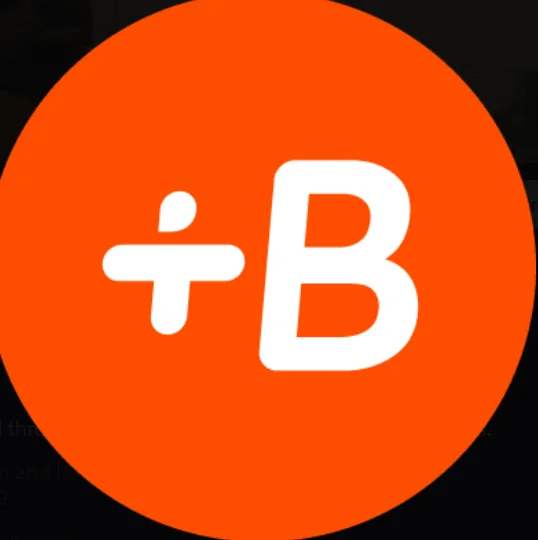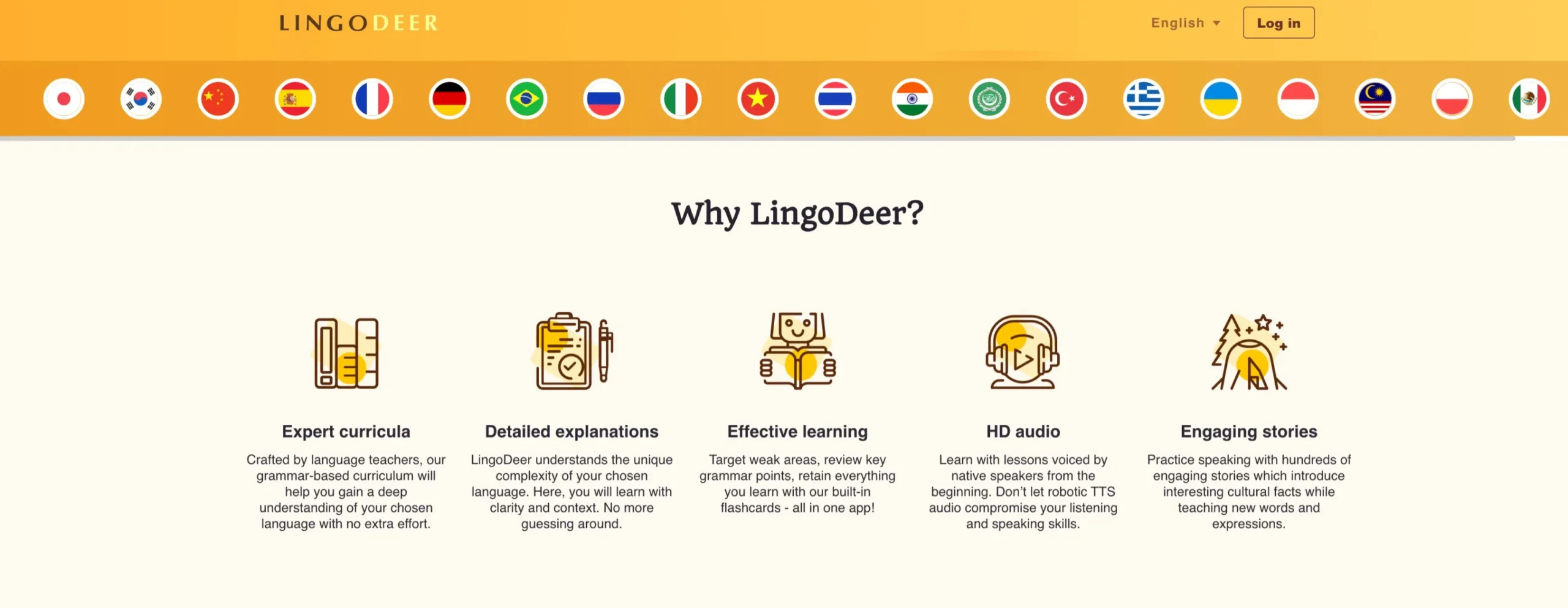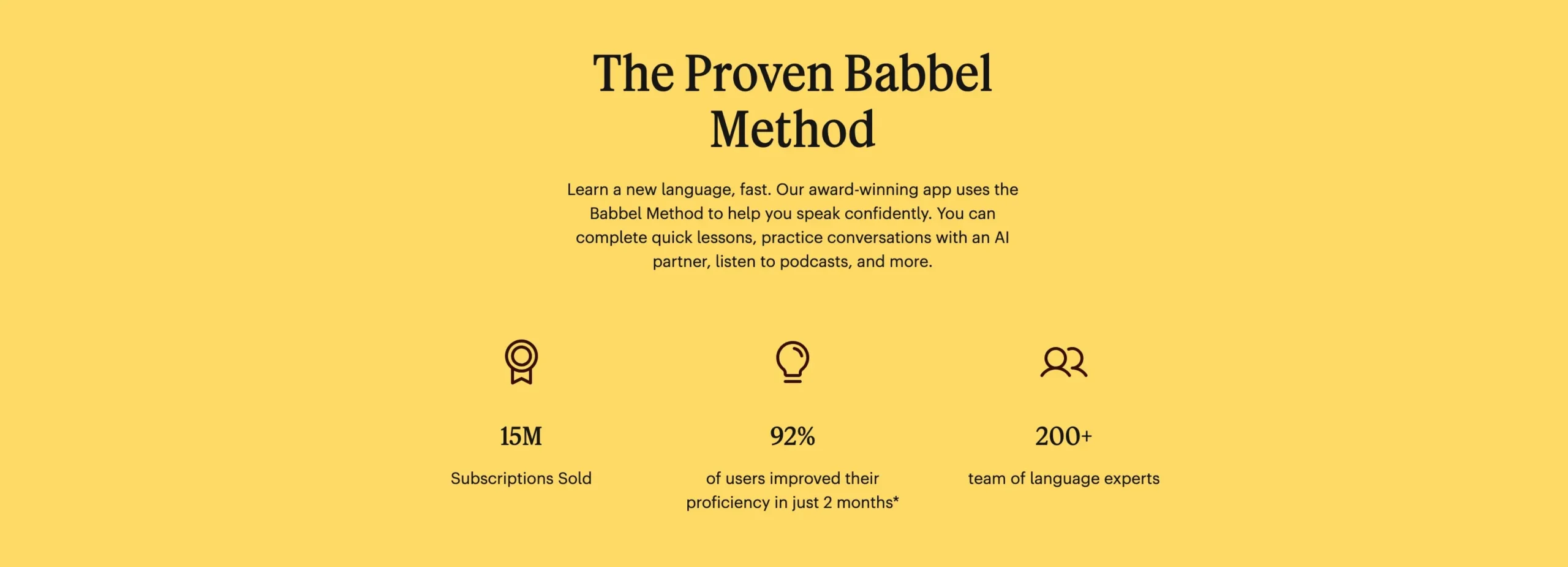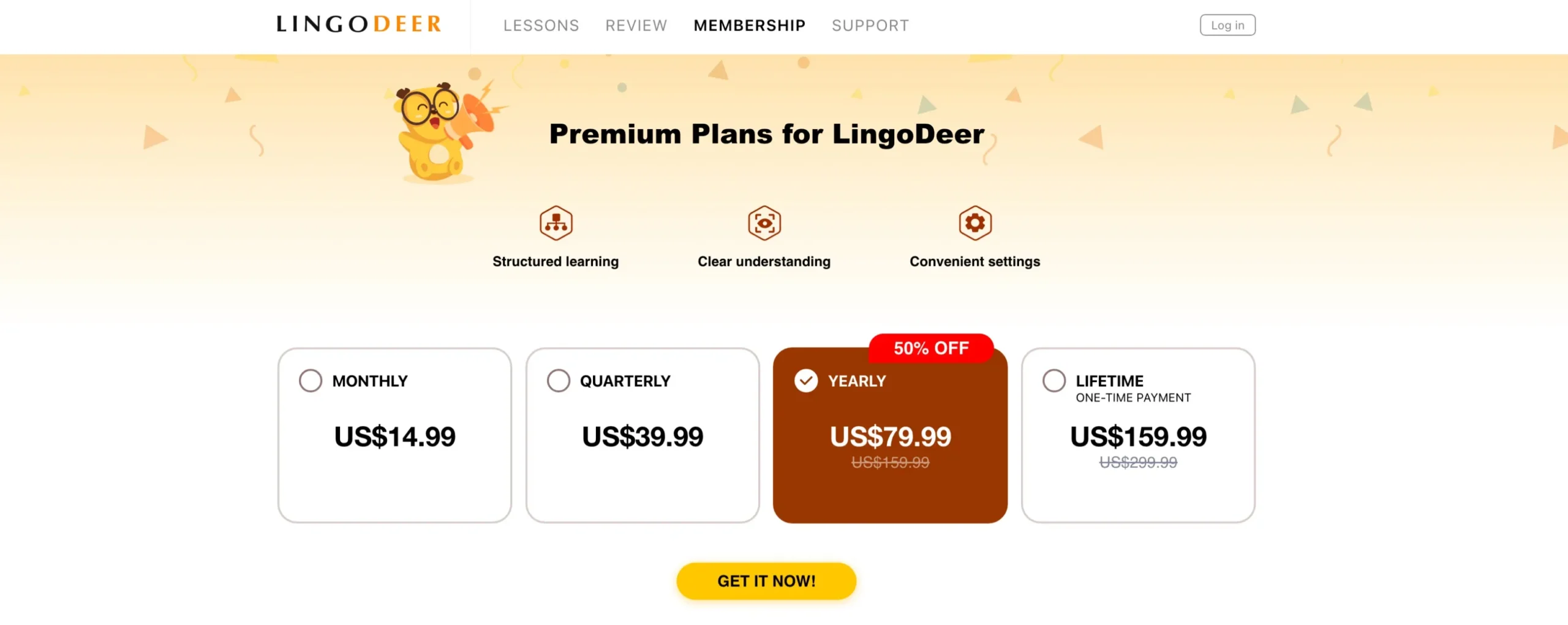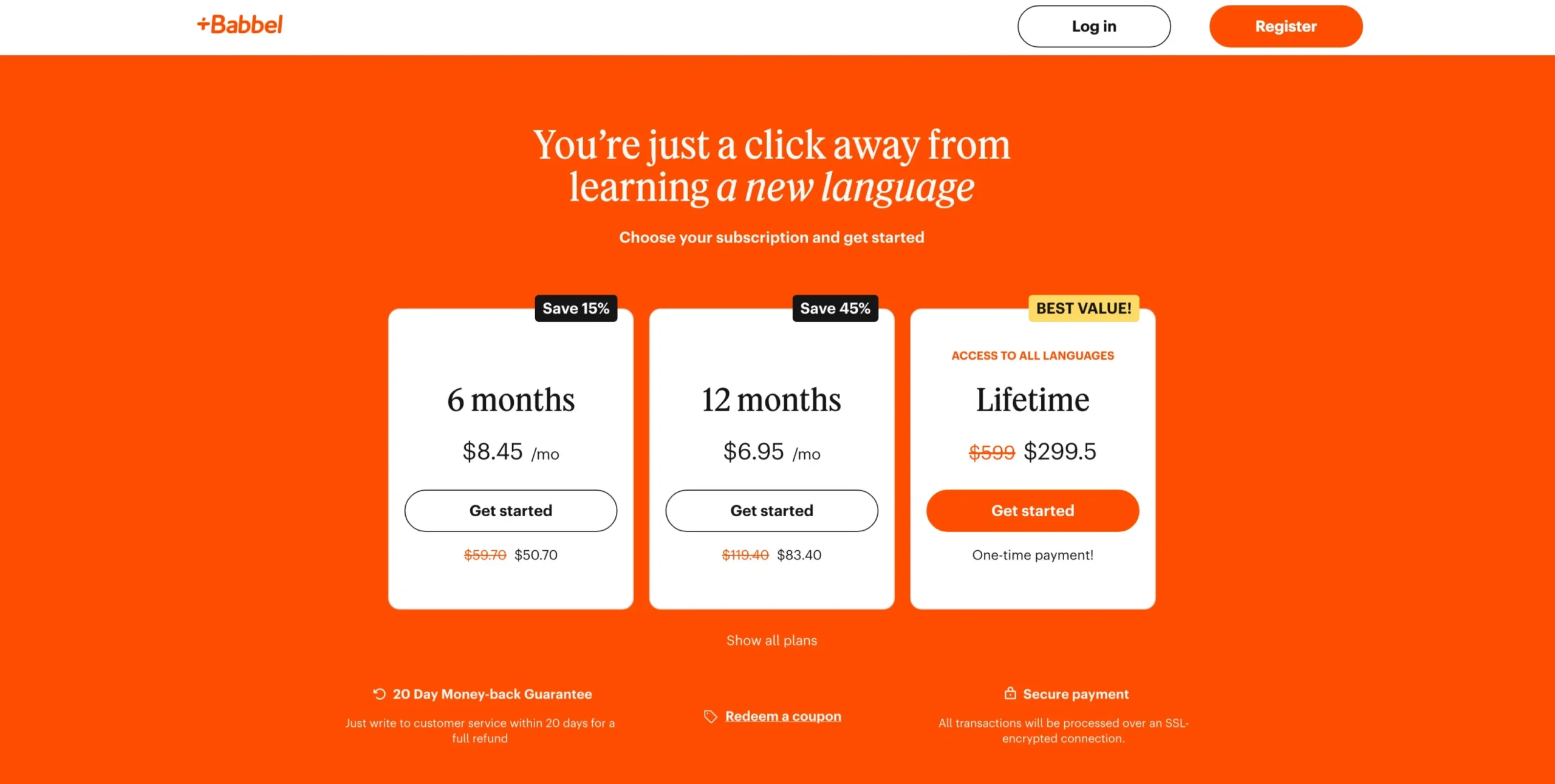Best For | Best for structured grammar learning, Asian languages, and offline study with exercises. | Best for conversational practice, European languages, and real-world dialogues with interactive lessons. |
Pricing | $14.99/month | $8.45/month |
Features | Strong grammar focus | Real-life conversation focus |
Pros | Fun, engaging exercises | Affordable subscription pricing |
Cons | No live tutor option | No free content access |
Looking for LingoDeer vs Babbel, I am here to help you.
Trying to choose between LingoDeer and Babbel for learning a new language? Both apps are popular, but they have different strengths.
LingoDeer is great for beginners who want structured lessons and strong grammar support, while Babbel focuses on real-life conversations and quick, practical learning.
If you prefer step-by-step guidance, LingoDeer might be a better fit. But if you want to start speaking right away, Babbel could be the right choice.
In this LingoDeer vs. Babbel comparison, we’ll explore their features, benefits, and which one suits you best. Let’s Get In!
What is LingoDeer?
LingoDeer is a language-learning application that teaches 13 different languages via the use of engaging, interactive games and exercises.
LingoDeer focuses on grammar-based, structured lessons for learners of Japanese, Korean, Chinese, Spanish, French, and more.
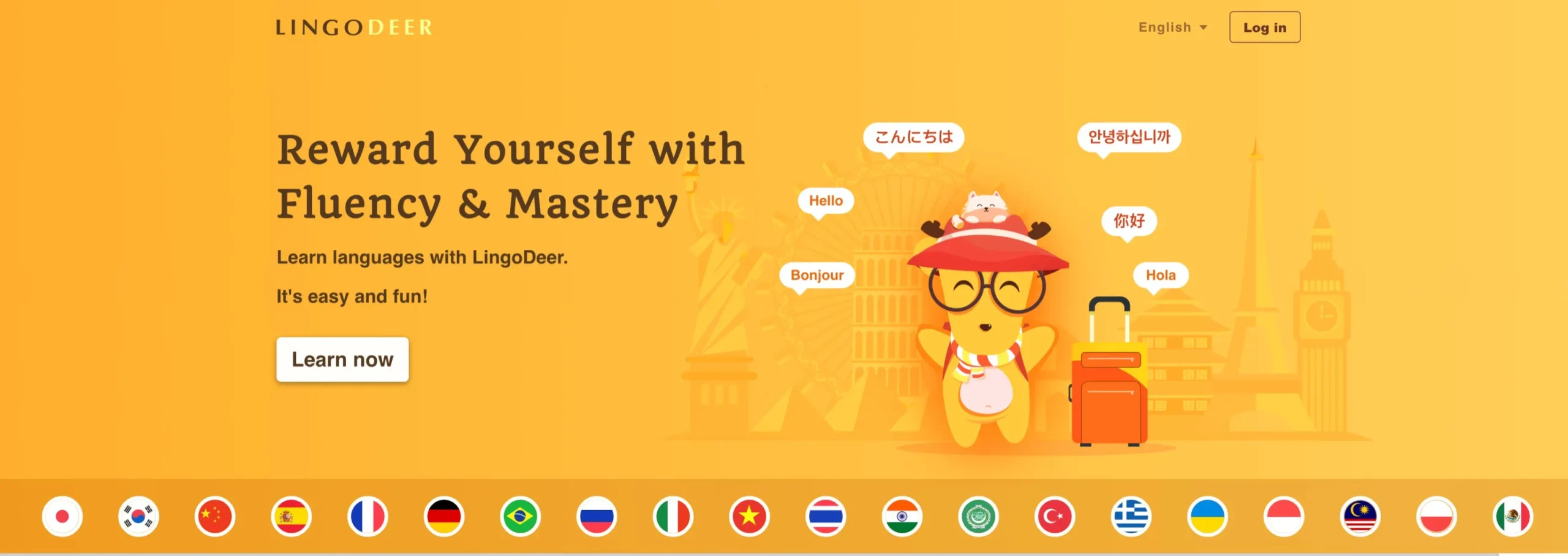
It offers in-depth explanations, interactive exercises, and pronunciation practice to help users build a strong foundation.
Unlike gamified apps like Duolingo, LingoDeer provides a more academic approach with clear grammar rules and sentence structures.
It supports offline learning, personalized review sessions, and a step-by-step curriculum designed for serious learners. Ideal for beginners and intermediate learners, it’s a great tool for mastering new languages effectively.
What is Babbel?
Babbel is a subscription-based language-learning app designed to help users learn and practice 14 languages, including Spanish, French, German, Italian, and more.
Babbel combines well-known quiz-style course components with vocabulary practice tools, exercises, pronunciation, and grammar instructors.
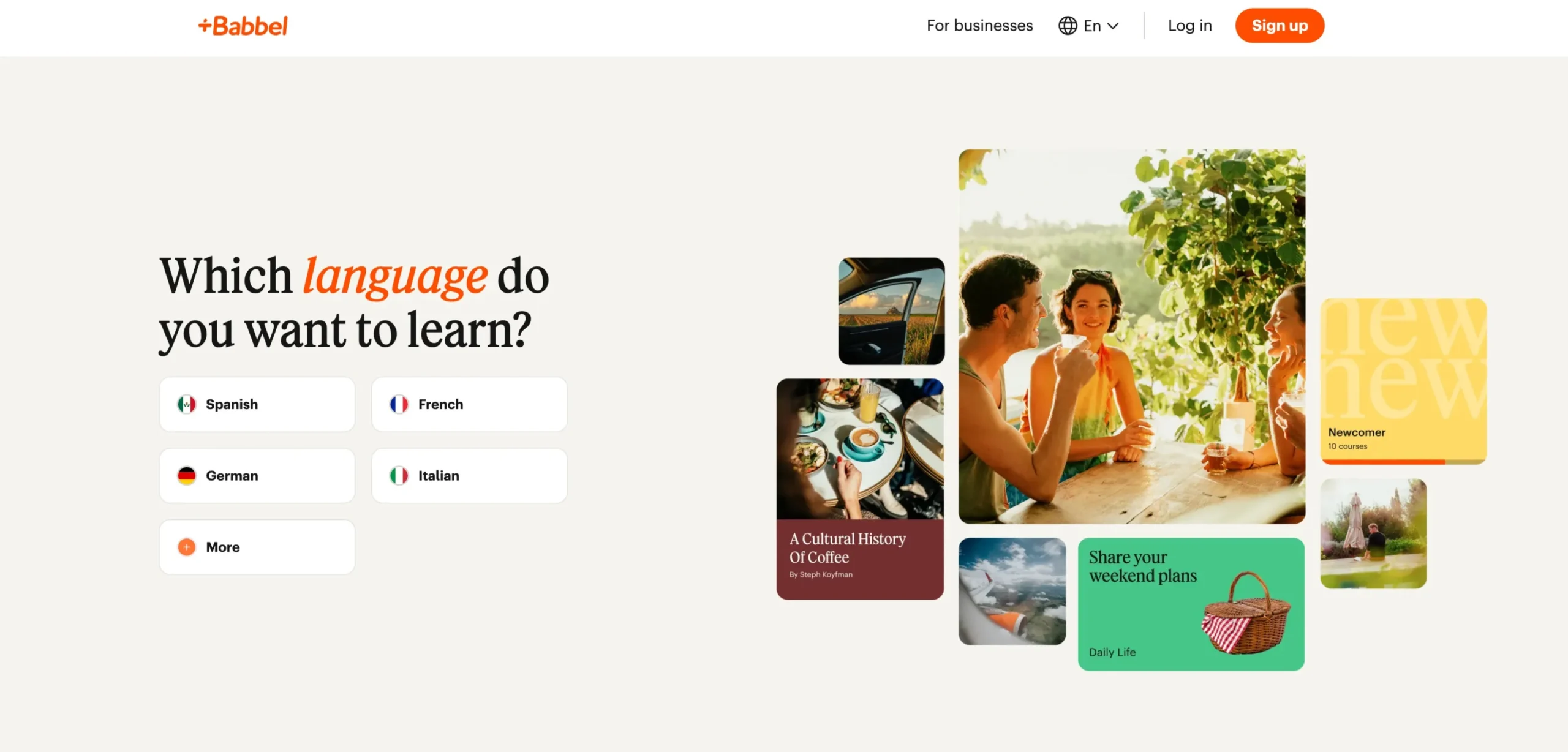
This online language education provider operates on a curriculum-based model with pre-recorded material. As a result, Babbel does not include any live contact.
It focuses on real-life conversations, grammar explanations, and interactive exercises to develop practical communication skills. Unlike gamified apps, Babbel offers structured lessons created by linguists, ensuring a progressive learning experience.
Features include speech recognition for pronunciation practice, personalized review sessions, and cultural insights.
Lessons are short, engaging, and tailored to different proficiency levels, making it ideal for beginners and intermediate learners who want to build confidence in speaking and understanding a new language.
LingoDeer vs. Babbel: Feature Comparison
1. Lesson Structure
- LingoDeer: Lessons are divided into topics like family, numbers, food, and health. It starts with an in-depth alphabet section covering pronunciation, word stress, and exceptions. Courses are structured uniquely for each language, making them more culturally relevant.
- Babbel: Offers structured lessons that must be completed in sequence unless skipped using a placement test. Courses are categorized into levels (Beginner to Independent) with specialized topics like Business German and Grammar.
2. Grammar & Explanation
- LingoDeer: Provides detailed grammar explanations in “Learning Tips” within each unit. The content is tailored for different languages rather than being duplicated.
- Babbel: Uses integrated explainers within lessons to teach grammar concepts. Lessons include interactive exercises to reinforce understanding.
3. Course Customization & Progression
- LingoDeer: Allows users to test out of earlier material if they already have knowledge. Some languages include story-based lessons.
- Babbel: Automatically assigns Topics based on interests but lacks a clear roadmap, making it harder to track previous progress if switching topics.
4. Language-Specific Adaptations
- LingoDeer: Adapts lessons to the cultural aspects of each language, such as teaching food vocabulary specific to different regions.
- Babbel: Focuses on practical vocabulary for everyday conversations but follows a more standardized structure across languages.
5. Course Availability & Flexibility
- LingoDeer: Over 60 topic-based mini-units per language, with more being added. Some languages include stories at the end of each unit.
- Babbel: Provides multiple levels per language, but the number of lessons varies between languages (e.g., German has more than Dutch).
6. Accessibility & User Experience
- LingoDeer: Offers a flexible learning approach, allowing users to move between sections.
- Babbel: Provides a straightforward progression, always displaying the next lesson when logging in, but navigation between topics can be confusing.
Why Choose LingoDeer?
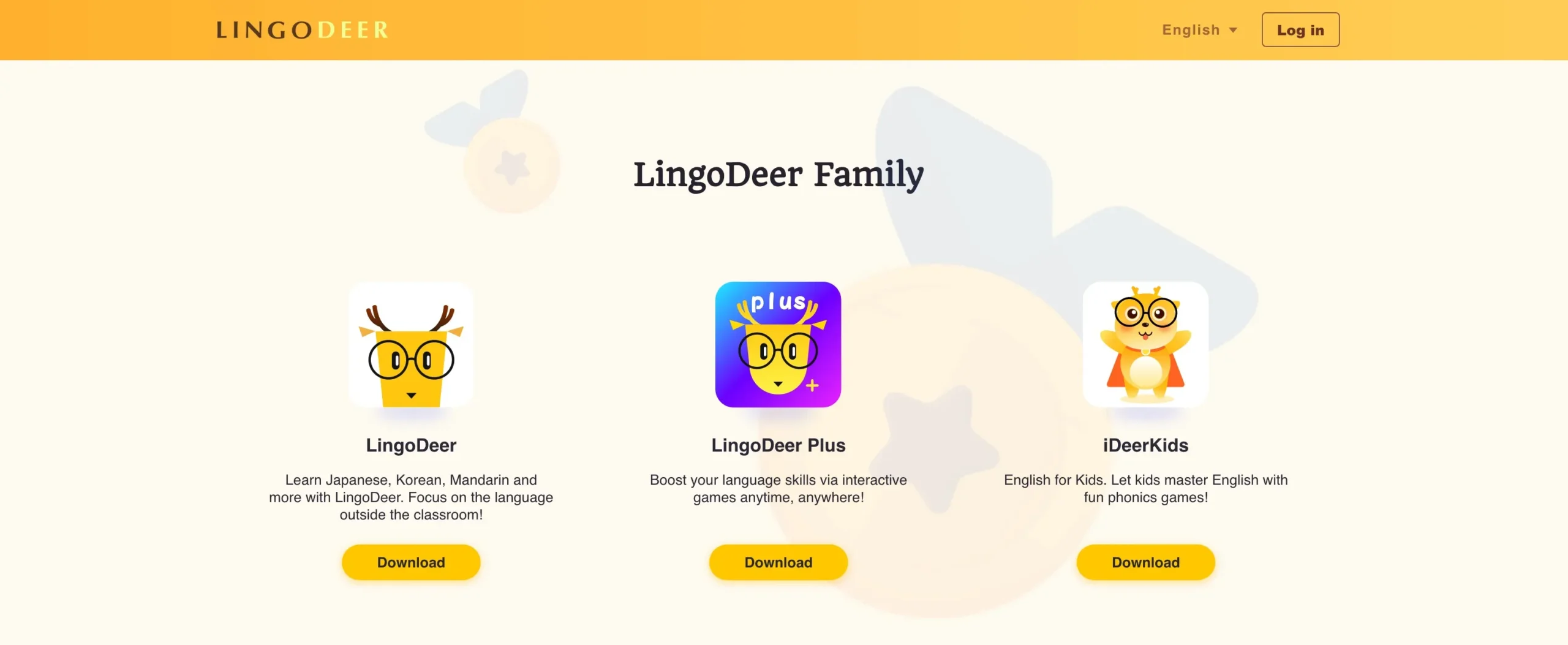
1. Expertly Crafted Lessons
Each lesson is carefully designed to break down complex grammatical concepts into clear, manageable segments.
The curriculum follows a structured approach, similar to classroom learning, ensuring that users understand language rules rather than just memorizing words.
This method is particularly helpful for languages with intricate grammar, such as Japanese or Korean, where sentence structure and verb conjugation can be challenging for beginners.
2. Detailed Explanations
At the beginning of each module, LingoDeer provides concise yet comprehensive grammar notes to explain key language rules.
Unlike many other language apps that rely on intuitive learning, LingoDeer ensures that learners grasp the underlying principles of the language, making it easier to form sentences correctly.
These explanations are particularly useful for self-learners who may not have access to formal language instruction.
3. High-quality Audio by Native Speakers
Pronunciation is a critical aspect of language learning, and LingoDeer enhances this by offering clear, high-quality recordings from native speakers.
This feature helps users develop accurate listening and speaking skills by exposing them to authentic accents and natural speech patterns.
Additionally, learners can listen to individual words or full sentences multiple times to perfect their pronunciation.
4. Engaging and Interactive Learning Experience
LingoDeer incorporates gamified elements to make the learning process enjoyable and effective.
Instead of passive memorization, users engage in interactive quizzes, matching exercises, and sentence-building games that reinforce what they’ve learned.
This approach keeps learners motivated and helps improve retention through active participation.
5. Customization Options for a Personalized Experience
LingoDeer allows users to tailor their study environment by adjusting settings such as text size, font styles, and background colors.
These customization options ensure that learners can create a comfortable and visually appealing interface that suits their preferences.
This level of personalization makes studying more enjoyable and accessible, particularly for those who spend long periods learning.
6. Offline Accessibility for Learning on the Go
One of LingoDeer’s most convenient features is its offline mode, which allows users to download lessons and study without an internet connection.
This feature is ideal for travelers, commuters, or anyone who wants to learn on the go without relying on Wi-Fi or mobile data.
Unlike some other apps that require continuous online access, LingoDeer ensures that users can keep learning anytime, anywhere.
Why Choose Babbel?
1. Learn to Speak with Confidence
Babbel focuses on real-life conversations, helping learners apply their knowledge immediately. Lessons are structured to improve practical communication skills rather than just memorizing vocabulary.
This approach enables users to start speaking their chosen language faster and build confidence in everyday interactions.
2. Personalized & Flexible Learning
Babbel tailors its course material to each learner’s proficiency level, interests, and time commitment.
The platform provides real-time feedback, progress tracking, and interactive visualizations to keep learners motivated.
With flexible learning schedules, users can study at their own pace, making it easier to stay committed and achieve their language goals.
3. Comprehensive Language Development
The app offers a well-rounded learning experience by incorporating speech recognition for pronunciation improvement, interactive dialogues to enhance conversation skills, and grammar tips integrated into reading, writing, and listening exercises.
This combination ensures users develop a balanced understanding of their target language.
4. The Proven Babbel Method
Babbel’s scientifically-backed learning approach is designed to help users speak a new language quickly and effectively. The lessons, created by a team of language experts, are short and engaging, making them easy to fit into daily routines.
Additional resources such as AI-powered conversation practice, podcasts, and videos further enhance the learning experience by providing diverse and immersive content.
5. Immersive Learning Experience
Beyond structured lessons, Babbel offers a variety of supplementary materials to deepen language learning.
Babbel Videos explore unique linguistic and cultural aspects, Babbel Podcasts provide expert insights into language learning and culture, and the Babbel Magazine offers in-depth stories, language tips, and cultural explorations.
These resources help learners stay engaged and gain a broader understanding of their chosen language.
LingoDeer Vs Babbel: User Reviews

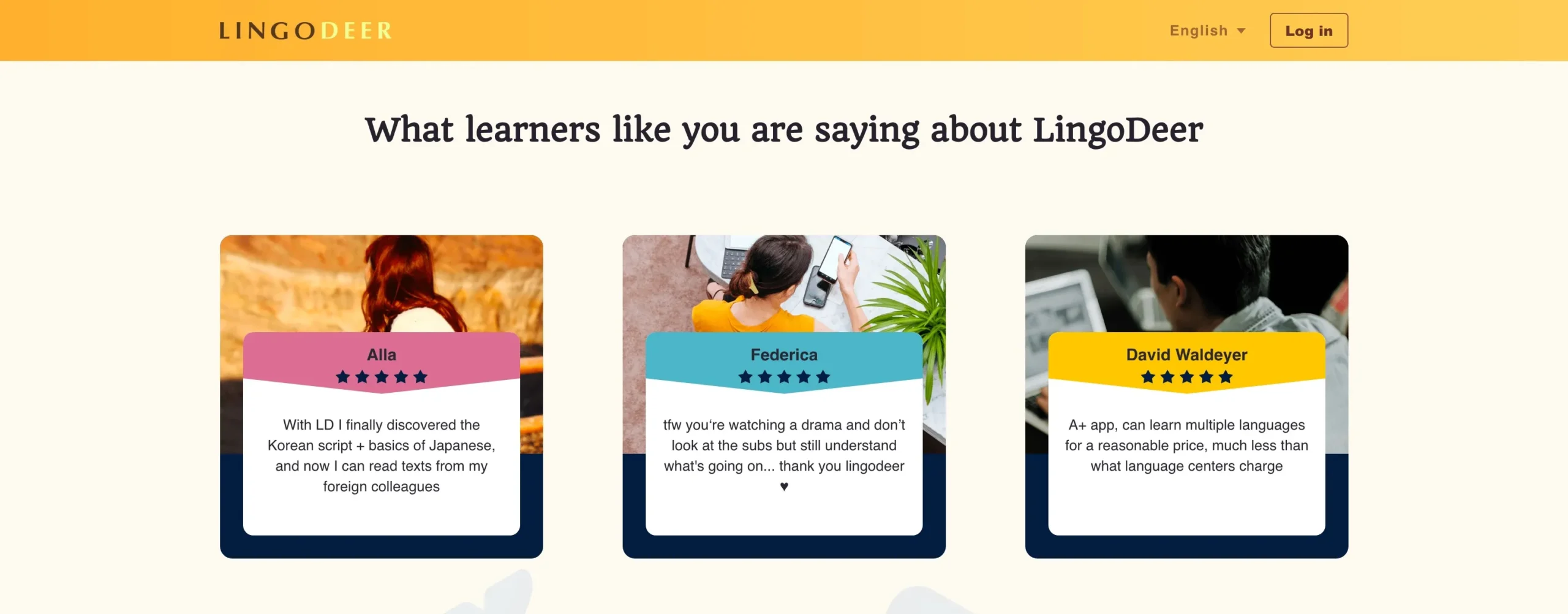
FAQs
👉 Is Babbel a monthly subscription service?
Babbel provides three-monthly, six-monthly, and annual subscription programs for learning. It's critical to know that Babbel registration is free. They will never charge you unless you input your payment information freely on their payment page.
🤩 Is it possible to become proficient with Babbel?
If you used Babbel exclusively to study a language, you would graduate with a solid foundation but would be far from proficient. Babbel does not make the promise that it will transform you into a near-native speaker of a new language.
🤔 Is LingoDeer an effective way to learn Chinese?
Indeed, it is. LingoDeer is a comprehensive tool that enables you to study all facets of the Chinese language. It covers everything: character development, listening, speaking, and grammar.
😯 Is LingoDeer going to assist you in learning a language? Indeed, it will!
The course structure enables students to reach the B2 level. The courses have been developed by experts, and the supplemental practice integrates seamlessly with the primary material to form an effective whole.
Quick Links
- Rocket Languages vs Duolingo
- Lingoda Review
- LingQ Review
- Udemy vs Coursera
- Udemy vs Pluralsight
- SoloLearn vs Codecademy
- Codecademy vs Treehouse
Final Verdict – LingoDeer Vs Babbel (LingoDeer Wins)
As you can see in the comparison, both Babbel and LingoDeer are tough competitors. However, there are certain advantages for LingoDeer.
LingoDeer has more features and a better course structure than Babbel, which is the most significant reason why one should choose LingoDeer over Babbel.
The pricing difference between LingoDeer and Babbel is not very high either. Babbel is a little less pricey, but the LingoDeer one-time purchase plan is unmatchable. So, I would recommend LingoDeer.


